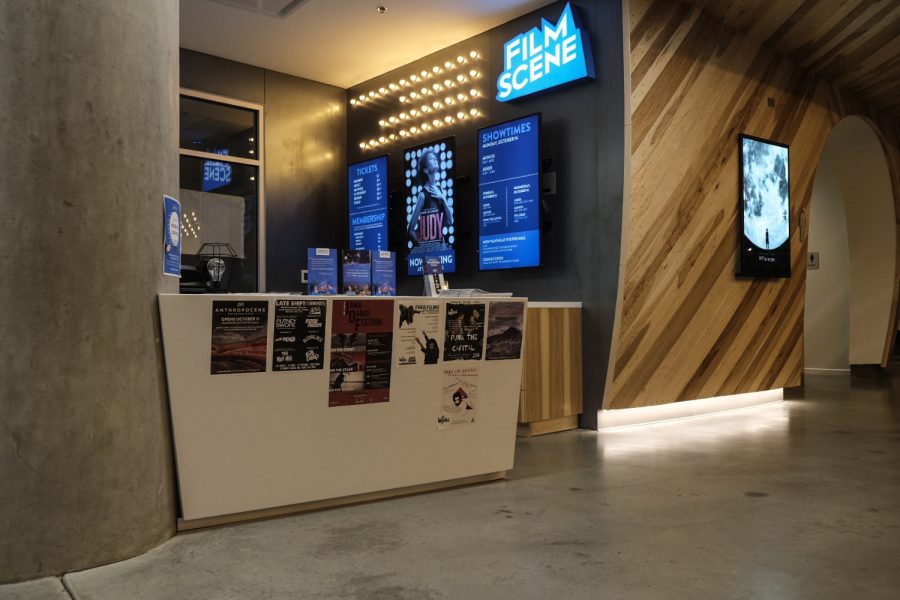Punk rock documentary rolls into Iowa City’s FilmScene
FilmScene is bringing punk documentary Punk the Capital to their silver screens, along with a Q&A with the director and punk drummer Jeff Nelson, and a punk show at Gabe’s to follow.
October 14, 2019
Tomorrow, FilmScene will be screening Punk the Capital, which tells the story of Washington D.C.’s punk rock scene in the late ‘70s and early ‘80s. The event features a Q&A with James June Schneider, the director, and Jeff Nelson, the co-founder of Dischord Records and the drummer for Minor Threat, followed by a punk show at Gabe’s at 9 p.m.
The decision to bring the film to Iowa City began the week of July 3, when FilmScene’s Programming Director Rebecca Fons heard from two different people asking about the movie — the booker for Gabe’s and a patron — as well as Schneider himself.
Fons said she saw the film as a great fit for the city.
“I recognize what an incredible space Iowa City is for live music… and how storied our history is of bringing really great live music, emerging artists and well-loved artists, to our community,” she said.
Fons reached out to University of Iowa Communications Professor Kembrew McLeod when deciding to bring the film to Iowa City. McLeod recently wrote about the film for The Little Village, and explained to The Daily Iowan what made punk so unique at the time.
D.C., McLeod said, was an interesting place for it to explode, as it was a very corporate, government environment for an anti-establishment movement to take place.
“The punk scene in D.C. was not political in the beginning, but it was political,” he said. “It wasn’t political with a capital ‘p’ politics — it did become much more political by the end of the 80s and continues to be — but I think the shock factor, just the fact that they existed in the first place, was political enough that they’re basically just messing with the minds of people who had never seen or heard anything like that.”
McLeod said that along with the music, key aspects of punk culture at the time included outfits, zines, and outrageous hairstyles.
“I think punk creates such a bright line in the sand between us and them, that I think it attracts people who feel so alienated from the society surrounding them,” he said. “Punk is a way of dividing up the world between like-minded people and the rest of them. The fact that punk was so extreme in its look and its sound and its culture made it appeal to people who were outsiders, or who felt like outsiders.”
McLeod said that the pervasiveness of punk, and its worldwide appeal, sets the genre apart from any other.
“Punk has been around for over 40 years and I can’t think of a single musical style and fashion style that has stuck around consistently for 40 years,” he said. “It’s really hard to think about another example other than punk that has had the staying power.”
Following the screening of Punk the Capital and the Q&A, FilmScene is offering a live punk show at Gabe’s, to further the experience of the film.
“I think it’s important because it allows people to engage with the film on another level,” Bijou Film Forum Committee member Calvin Leslie said. “Instead of just leaving the theater and going home to watch Netflix or something, they get to unpack a bit of the film and delve into it more than they would have if they hadn’t had an expert there.”














